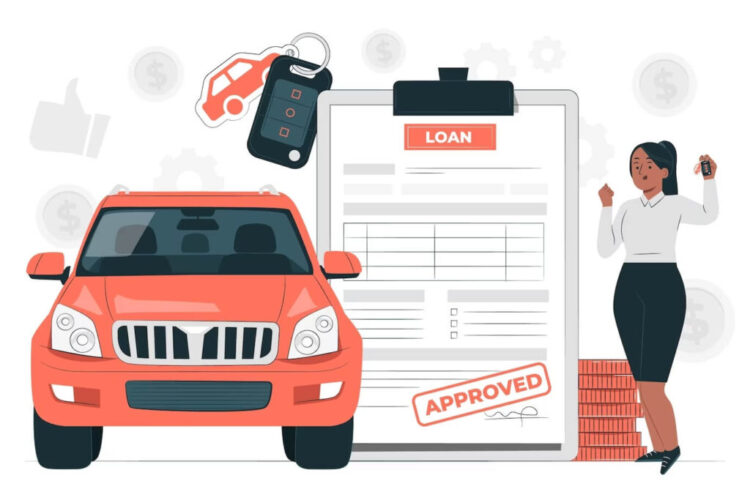
Is the idea of having your own vehicle as a student appealing to you? It’s not just about the allure of the open road; it’s about the practicality of managing your daily schedule more efficiently. In this comprehensive guide, we’ll navigate through the ins and outs of car loans for students, helping you make an informed decision.
Student Auto Loans
Many students wonder if they should consider a car loan. Let’s explore why more students today are opting for this financial route.
The Increasing Demand
A car isn’t just a means of transportation; it’s a tool for independence. As a student, your schedule can be hectic, filled with classes, study sessions, part-time jobs, and a healthy dose of social activities. A car allows you to manage your time more effectively, ditching bus schedules or the hassle of biking in the rain.
Benefits of Having a Car as a Student
The benefits of owning a car as a student are multifold. It enables a more flexible schedule, making it easier to juggle classes and work commitments. Plus, having a vehicle at your disposal can make tasks like weekly grocery shopping or moving your belongings a breeze. Not to mention the impromptu road trips you could take with friends. Indeed, a car could significantly enhance the overall college experience.
How Do Car Loans for Students Work?
Understanding the process of obtaining a student car loan can make the whole endeavor less daunting. So let’s demystify the concept of student car loans.
The Basics
A car loan for students is not fundamentally different from a regular car loan. It’s a type of financing that allows you to purchase a vehicle by spreading the cost over an extended period, known as the term of the loan. You’ll make monthly payments, which include the principal amount and interest, until the loan is fully paid off.
Factors Lenders Consider
What do lenders look at when you apply for a student car loan? The answer isn’t as intimidating as you might think. While credit history and income are essential considerations, many lenders understand that students may have limited credit and work history.
Types of Car Loans Available to Students
Just as there are different types of students, there are different types of car loans. The key is to find the one that best matches your situation.
Traditional Car Loans
These loans are available to the general public, not exclusive to students. Banks, credit unions, and online lenders offer them. While they may not have the same flexibility as student-specific loans, they might still be a viable option, especially if you have a part-time job or a willing co-signer.
Student-Specific Car Loans
Certain lenders understand the unique circumstances students face and offer loans designed just for them. These loans might have more lenient approval criteria and may include benefits like lower interest rates, deferred payments, or discounts for good grades.
How to Qualify for a Student Car Loan
Are you ready to apply for a car loan? Let’s look at what it takes to get approved and some tips to improve your chances.
Requirements
While requirements may vary between lenders, some common ones include proof of enrollment in a college or university, a valid driver’s license, and proof of income or ability to repay the loan. The latter could come from a part-time job, financial aid, or even parental support.
Tips to Improve Your Chances
Increasing your chances of getting approved for a student car loan might be easier than you think. Building a good credit history, even with a student credit card or secured credit card, can show lenders you’re responsible with credit. Showing a steady income, even from a part-time job, can also reassure lenders. Finally, consider a co-signer. This is someone who agrees to repay the loan if you can’t, and having one can significantly increase your chances of approval.
Choosing the Right Car Loan as a Student
Choosing the right car loan is crucial. It’s not just about getting approved; it’s about managing the loan successfully over the term. When choosing a loan, consider factors like the interest rate, the length of the loan term, the lender’s reputation, and any extra features or benefits the loan offers. Don’t forget to consider the overall cost of owning a car, including insurance, maintenance, and fuel.
Managing Car Loan Repayments as a Student
Successfully managing a car loan as a student might seem like a tall order, but it’s achievable with some planning. Budgeting is essential; you need to ensure you can handle your monthly payments along with your other expenses, like tuition, housing, and personal expenses. It’s crucial not to overextend yourself, as failing to make your payments could lead to repossession of the car and damage your credit.
Pros and Cons of Car Loans for Students
| Pros of Car Loans for Students | Cons of Car Loans for Students |
| Convenience and freedom a car offers: A car offers mobility, helping you travel at your convenience without depending on public transportation. | Financial burden of monthly payments: Car loans entail monthly payments, which can strain a student’s budget. |
| Potential to build a good credit history: Regular and timely payments of your car loan can contribute to building a positive credit history. | Risk of overextending yourself financially: There’s a danger of overcommitting financially, potentially leading to missed payments, damaging credit score. |
| Enables a flexible schedule: Owning a car provides flexibility, helping you manage your classes, work, and social commitments more easily. | Additional costs: insurance, maintenance, and fuel: Owning a car involves other costs beyond the loan payment, including insurance, regular maintenance, and fuel. |
| Enhanced college experience: A car can facilitate road trips, visits home, and other activities that enhance your overall college experience. | Possible higher interest rates due to limited credit history: Students often have limited credit histories, which might result in higher interest rates on their car loans. |
| Opportunity for independence: Owning a car can foster a sense of independence and responsibility. | Depreciation of the vehicle: Cars depreciate over time, which means your car’s value decreases the longer you own it, possibly resulting in owing more on the loan than the car is worth. |
| Learning to manage financial obligations: Having a car loan can provide a valuable opportunity to learn about managing financial obligations and budgeting. | Potential impact on student aid: A car loan might affect your eligibility for certain types of financial aid, as it could be considered when assessing personal assets. |
Alternatives to Car Loans for Students
Before diving into a car loan, it’s wise to consider other options. These might include leasing a car, which often requires lower monthly payments, or buying a used car outright to avoid monthly payments entirely. Some students might find it’s cheaper to use public transportation or a bike, or even to rent a car for occasional needs.
Conclusion
A car loan can be a viable route for students needing a vehicle. The key to success lies in understanding how they work, how to qualify, and how to manage the loan responsibly. The freedom and convenience of owning a car can be a significant addition to your college experience, but it’s essential to make sure it fits into your financial situation.
Frequently Asked Questions
- Can a full-time student get a car loan?
Yes, a full-time student can get a car loan, although the terms may vary based on the lender.
- Do I need a co-signer for a student car loan?
Not always, but having a co-signer could improve your chances of approval and get you more favorable terms.
- Are there car loans for students with bad credit?
Yes, some lenders offer car loans for students with bad credit, but they may come with higher interest rates.
- Is it better for a student to lease or buy a car?
The answer depends on the student’s financial situation, preferences, and how much they intend to use the car.
- What are the risks of getting a car loan as a student?
The major risk is failing to keep up with repayments, which can damage your credit score and lead to additional fees or even repossession of the vehicle.







